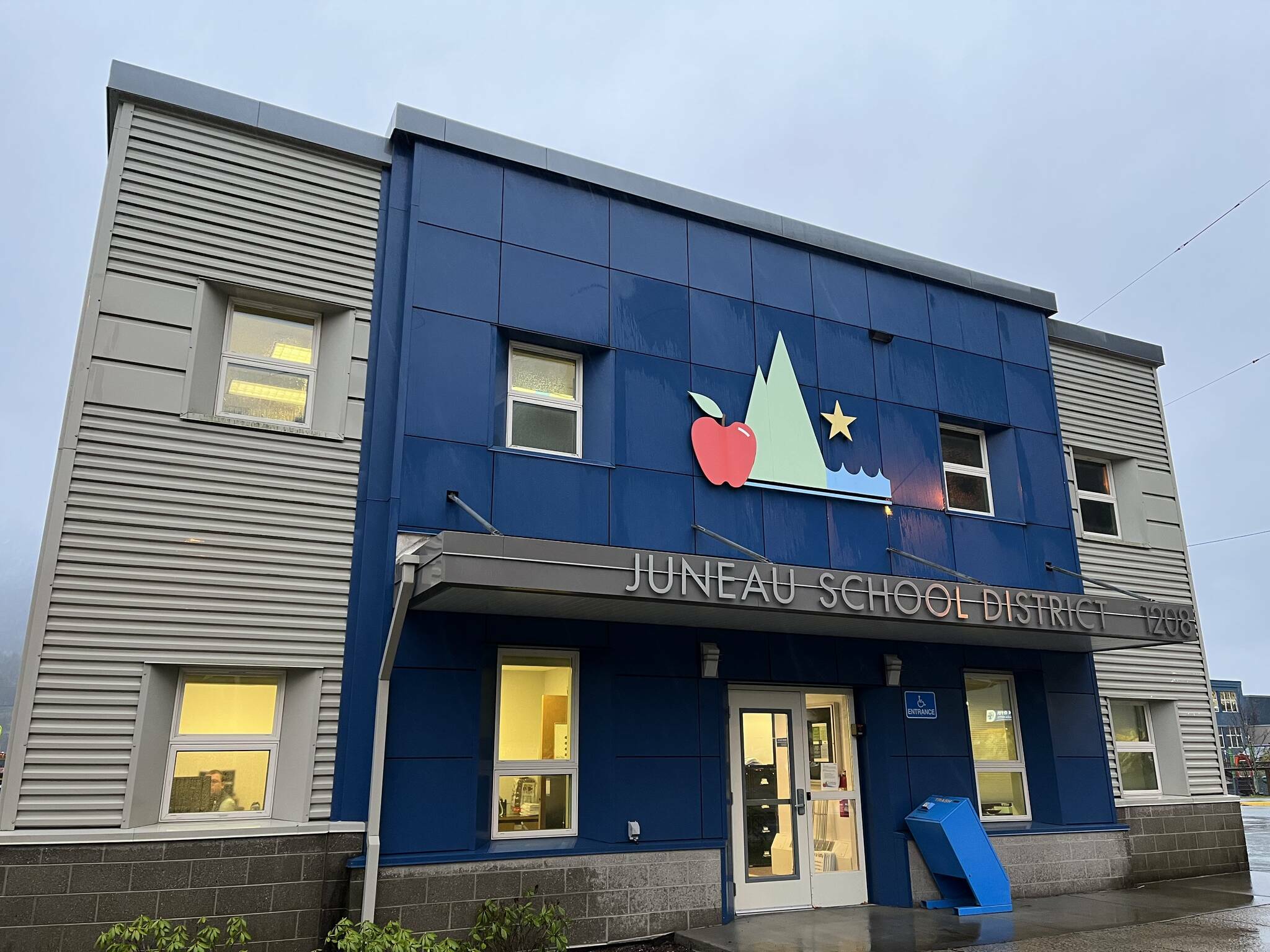An effort to change the rules that allow the Juneau School District to accept millions in “local contribution” funds from the city is planned by the Alaska Department of Education and Early Development (DEED) after abandoning an earlier challenge under existing rules involving such funding to all districts in the state, according to a letter sent by the department Friday.
The dispute with the state involves funds the district used for after-school childcare and community school programs, pupil transportation, and wrestling mats. The state, in a letter in June, argued such spending exceeded a statutory “funding cap” for education spending, while district officials asserted exemptions exist for non-instructional purposes.
“These are long-standing items that our community has found to be important and worth it,” said Will Muldoon, chair of the finance committee for the Juneau Board of Education, in an interview Tuesday, noting such spending has occurred for many years. “And so my viewpoint is that we have not deviated or changed in practice in any way, shape, or form. And I don’t know what had caused that issue at the state level.”
DEED is now backing away from its challenge to such funding while it pursues a change to the state statute involved, according to a Dec. 1 letter by Lori Weed, the education department’s school finance manager.
“DEED will honor JSD’s interpretation of ‘local contribution’ as only including appropriations to or funds reported in a school district’s operating fund, until a new regulation takes effect, if ever,” the letter states, adding the June letter as well as one sent in August about the same subject “may be disregarded.”
Juneau School District Superintendent Frank Hauser, in an email Tuesday to the Empire, stated Weed’s letter confirms “a change in position” by the state education department.
“DEED now confirms that the federal disparity test ‘is a separate requirement for the state, and does not control the interpretation of the state statutes governing school funding and the local contribution,’” he wrote.
The department intends to change the statute “to make clear that ‘local contribution’…is not limited to funds appropriated to or reported in a district’s school operating fund,” Weed wrote. The letter does not provide specifics — or how that might affect the items the Juneau School District spent such money on if attempted in the future — but it states any changes will not occur until at least 2025.
“In consideration of the budgeting process already underway for the FY2025 budget cycle, and the procedures required before a regulation can take effect under the Administrative Procedures Act, DEED would request that any regulation amendment take effect for the FY2026 budget cycle,” Weed’s letter states.
“Of course, any proposed regulation project must go through the required procedures under state law, including a mandatory time period for public comment, and it would ultimately be up to the State Board of Education and Early Development to consider public comment and vote on whether they would adopt any regulation change.”
Attempts by the Empire to contact Weed on Tuesday afternoon for specifics and the reasoning of the proposed regulation change were unsuccessful.
Hauser, in his email, stated “I can’t comment on something I haven’t seen” regarding the implications of a possible new regulation.
“‘Active partnerships’ is one of DEED’s ‘core services,’ and JSD looks forward to continuing in partnership with DEED in pursuit of educational goals,” he wrote.
Muldoon noted the district is just beginning its budget process for the 2025 fiscal year that starts next July 1, so not having to worry about the local contribution issue is a significant plus.
“I am appreciative of that because we are currently underway on our budget process and that’s a big shift to keep sailing,” he said.
DEED’s challenge in June was to about $2.3 million the city gave the school district as part of its roughly $95 million budget for the current fiscal year. The state’s argument was the “outside the cap” funds violated federal equality requirements, which in Alaska means there is less than a 25% funding difference between the highest- and lowest-funded districts.
The state’s challenge, if upheld, would have required the city to rescind the funding, thus forcing the district to either cut spending or find another way to pay for the programs and items specified. District officials, in a July 28 letter, stated $750,000 of the funds went to after-school childcare, $230,000 for community school programs, $1.28 million for pupil transportation and $60,000 for wrestling mats.
Numerous other municipalities in Alaska have made similar allocations to their districts — and DEED in July widened its now-abandoned effort beyond Juneau to challenge such spending statewide.
Municipal and district officials statewide have also for years criticized the level of per-pupil education funding by the state, which until this year remained nearly unchanged since 2017 — thus resulting in a sharp drop in practical terms due to inflation. The Legislature passed a one-time $680 increase in the per-pupil formula this year — still well short of the inflation gap, according to educators — but Gov. Mike Dunleavy vetoed half of the amount.
Dunleavy, who included no increase in the per-student formula in his proposed state budget last year, is scheduled to release his proposed budget for the coming fiscal year on Dec. 15.
• Contact Mark Sabbatini at mark.sabbatini@juneauempire.com or (907) 957-2306.

